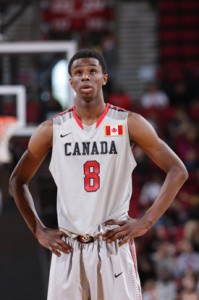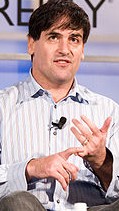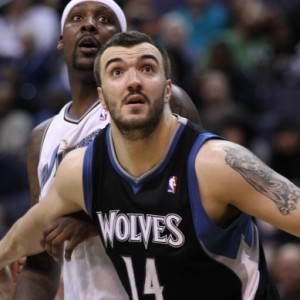 Get used to this word: Tankapalooza.
Get used to this word: Tankapalooza.
There are 10 teams, give or take, who have a legitimate chance to compete for the NBA championship in 2014. Everybody else will suck. Some will suck more than others, and that will be a good thing for them.
Because that will improve their chances of landing the No. 1 pick in the 2014 NBA draft and selecting Andrew Wiggins of Kansas, who will be the next LeBron James.
Unfortunately, Wiggins is not expected to suit up in Venezuela for Team Canada in the Tournament of the Americas, which will help set the field for the 2014 World Cup in Spain. But the No. 1 pick in the 2013 draft, Anthony Bennett, is expected to be in uniform, as will Tristan Thompson, Cory Joseph, Kelly Olynyk, Andrew Nicholson and Robert Sacre.
Team USA will not be competing, having already qualified by winning the 2012 Olympics in London.
But international basketball is something we will focus on in August and September, as we always do.
Today, it is still July, and there still is quite a bit of unfinished business on the NBA free agent market — and a ton of speculation about the 2014 free agent market.
Guess what, folks … looking ahead to each summer’s free agent market is the new new. This is because the new collective bargaining agreement limits ach NBA team to a single player having a five-year contract, which is what Chris Paul got from the Los Angeles Clippers and John Wall is getting from the Washington Wizards.
Four years is the max for everyone else, and many of those four-year deals have opt-outs after the second or third year. So we are going to have free agency speculation beginning in late November or early December every year, and this year’s poster child for the new phenomenon will be the Los Angeles Lakers, as colleague Mark Heisler explains here.
Paul George is the latest to be asked questions about potentially signing an offer sheet with the Los Angeles Lakers while some New York Knicks fans are quietly wondering whether or not Carmelo Anthony is worth the maximum five-year, $135 million contract he will be eligible to sign next summer to remain in Gotham.
In years past, by the time August rolled around, the top free agents were off of the market. Yet, for complicated reasons, our top two—Nikola Pekovic and Brandon Jennings—are still unsigned. All the while, many of the smaller dominoes around them have continued to fall.
One of our personal favorites, Gary Neal of the San Antonio Spurs, became an unrestricted free agent after the Spurs brass decided to revoke his $1.1 million qualifying offer. After seeing Nate Robinson agree to take his talents to Denver to play for the new-look Nuggets, we believed that Neal’s market value is somewhere in the same stratosphere as what Robinson signed for in Denver: two-years, $4 million. Neal ended up coming up a little bit short of that — $6.5 million for two seasons with the Bucks.
And while Kyrie Irving has begun fielding questions and concerns about whether or not he plans to remain a Cleveland Cavalier for the long haul, reader beware: the Cavaliers are amongst this offseason’s biggest winners—having hauled in a catch featuring Jarrett Jack, Andrew Bynum, first overall draft pick Anthony Bennett and Earl Clark.
Clark, it should be remembered, signed with the Cavaliers for two years and $9 million.
Brandan Wright, on the other hand, has agreed to re-sign with the Dallas Mavericks—a team that also made some wholesale changes.

Mark Cuban
Mark Cuban agreed to pay Wright a guaranteed $10 million over two years, while Wright has the ability to earn an additional $1.1 million in incentives.
Wright is actually coming off of a career-best season in which he scored 8.1 points and grabbed 4.1 rebounds per game. He will rejoin the new-look Mavs, who also signed Jose Calderon, Monta Ellis, Samuel Dalembert, Gal Mekel, and Wayne Ellington.
In hindsight, was it a good idea for Mark Cuban to break up his 2011 championship team?
“Yes,” Cuban told Chris Sheridan in a one-word response to an e-mail asking that very question.
(I disagree-CS)
Here are the updated rankings…
